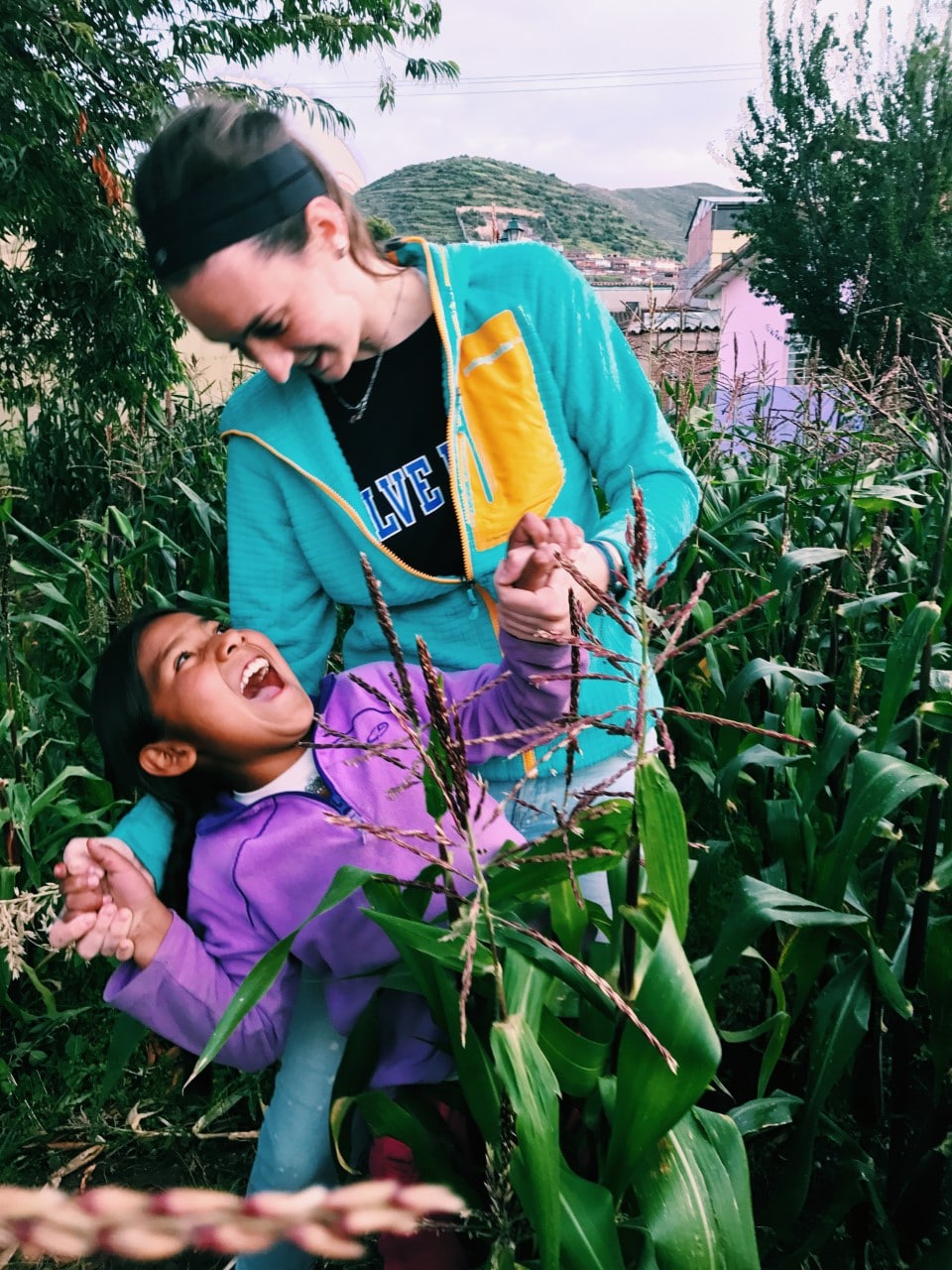By: Amanda Valentine | Staff Writer
Before leaving for study abroad, the Office of International Programs had informed us of what to do in the face of any problem, from the simplest to the most challenging: from dealing with a drunken roommate to handling yourself in a terrorist attack. Despite the preparation, no one could have guessed or even remotely expected the outbreak of a pandemic, resulting in rapid changes unprecedented for students both on campus and abroad.
While Salve began to call students home from their study abroad locations one by one (first Italy, then mainland Europe, then Ireland), the UK remained remarkedly unphased. Despite Oxford’s reputation as a place of international education, it was business as usual, even after it became public knowledge that a student at the University tested positive. I hardly saw masks, no stores were taking precautions, and up until my very last week, pasta was readily available at any Tesco’s or Sainsbury’s. Schools across the U.S. were closing before Oxford seemed to show any sign of affliction.
This is likely due, in part, to Prime Minister Boris Johnson’s initial strategy for combatting Coronavirus. Donald Trump had considered it momentarily, too. This strategy is called “herd immunity,” and is basically just like taking Vanessa Hudgens’ thoughts very seriously: “People are gonna die, which is terrible, but like, inevitable?”
So, while case numbers worldwide were skyrocketing, it seemed to me like things would continue as planned. And they did, up until Trump placed a travel ban on the EU on Wednesday, March 11th. My boyfriend had been planning for months to fly into England that Thursday morning, the 12th, but with the travel ban announced, the threat of Coronavirus now seemed too real to ignore. He cancelled his plans just the night before his flight, and, on top of our shared disappointment, I now felt unsafe being anywhere but home.
It was odd that my home country was announcing travel bans and closing schools out of mere precaution, while Oxford University, with a student who had tested positive, seemed to Keep Calm and Carry On. My feelings were split between panic and unconcern. The consensus of the time was that “it’s just like the flu,” and “young people will be fine.” It’s odd that this thinking is only a month old- it now reads as extremely misled.
Though U.S. citizens would still be able to travel back home under the travel ban- that had been a stressful confusion for us study abroad students in and of itself- the ban had left me feeling unsettled. If people were avoiding travel into Europe, I no longer felt like I should be in Europe. And apparently, a lot of my peers at St. Clare’s felt the same, as their parents or respective universities mandated their return home. More and more students were leaving their study abroad locations by the hour, but my international college was still in the first phase of their response, unaffected.
As a result of this, I was both surprised and yet expectant when I received an E-mail from Salve just hours later, on March 13th, calling all students home.
I was grateful that I would be able to be safe at home, that Salve would help accommodate the change, and that I would still be able to complete my courses. With all the stress, confusion, and disappointment that had compounded in relation to Coronavirus, I was a bit grateful to be able to deal with it at home. But all the same, it was officially the end of the semester abroad that I had wanted for years. I had grown to love Oxford, so there was some unshakable disappointment in that.
I emailed the Program Director of St. Clare’s about Salve’s decision, and he recommended that we all stay for at least one more week to see each of our professors one more time. So, it then being Saturday, March 14th, I looked for flights for Thursday, having no classes on Fridays.
I ended up with a flight much earlier: Monday morning.
Now a bit stressed over the minimal time before the flight, I began to pack, leaving some things aside to use for the next 24 hours.
Then, not a half hour later, my mom informed me that the only flight that I could in exchange for my original flight home with Delta would be Sunday morning- after that, flights would start going for $1000 or more.
It was around 11:30PM when I found this out. I scrambled to find a bus ticket to the airport that wasn’t too expensive to book the night before, emailed my program director, then continued to pack everything. I’d have to be out the door by 7AM to catch a bus to the bus station.
The whole ordeal took me about an hour, and I was in bed by 1AM. However, the past three days had felt like someone had been repeatedly pressing the fast-forward button. 72 hours ago, my boyfriend was going to spend the weekend in England with me, and now I was heading home in a mere five hours. I didn’t sleep for one second of those five hours, having been on quite the mental rollercoaster.
At 6:30AM I got up for maximal travel on minimal sleep, and while I had learned how to navigate an airport on my own over the course of my study abroad, London Heathrow felt different than it had on January 11th. For one, there’s nothing quite like stepping into a crowded elevator and being the only person not wearing a face mask to make you feel like the world is ending, and you have not been paying attention.
I had a layover in Amsterdam, where I sat for three hours, trying to touch as few surfaces as possible. That flight from Amsterdam to Boston was the eeriest, most empty flight I had ever been on. Not only were the two seats next to my window seat empty, but the entire row, all three sections: empty. No one had to awkwardly step over a sleeping someone else to get to the bathroom. It was nice, in a sense, but not so much when one remembers the reason why.
When the flight was an hour or so out of Boston, I was handed a form to fill out about my identity and health status. I had to report on symptoms, where I’d traveled to, who I’d been in contact with. We were simultaneously told that we would not disembark the plane when we landed; authorities would board and escort us off in sections. From there, we would go through “screening.”
Having no clue as to what any of that entailed, the statement itself sounded like something out of a sci-fi dystopian novel. It stood in stark contrast to the laid-back nature of the Oxford I had left. Despite the intimidating sound of this announcement, the arrival at the airport was quite underwhelming. Almost worryingly so.
We were told to disembark in sections, but there was no procedure or instruction; it seemed so pointless that a much older woman in front of me berated the flight attendant and police officer on board with questions: “What are they doing? They said to stay apart, but we’re crammed together in here like peas in a pod?”
We shuffled off the plane and fell into the line for screening. I thought it would take an hour or longer to test all those people, and my tired mind was not excited to stand around for that long.
But the line flew. We weren’t being “tested.” They just asked:
“Have you experienced a fever in the last two weeks?
Have you been to China in the last two weeks?
Have you been near anyone diagnosed with Coronavirus in the last two weeks?”
Having answered no to all three, they handed me papers to keep track of my temperature for the next two weeks (which I would inevitably somewhat shamefully recycle) and sent me along.
I had a sort of “that was it?” feeling. It seemed so odd that in so dire a situation, they would rely on my own, possibly misguided, report on my condition. If I did have COVID-19, I might have easily walked through all the same. In hindsight, now knowing that 25% (or more!) of people with COVID-19 have no symptoms, it’s likely that many people with COVID-19 did walk through just as easily.
I was on my way home to Sandwich around 11PM that Sunday night, but it was about 4AM for me, still in sync with London-time. A day later, Massachusetts closed all non-essential business, as the rest of the country gradually did the same. Over the course of the following week, the UK would suddenly act, and the entirety of my international college would move online soon enough.
March 11th-15th was easily one of the most stressful, unpredictable weeks of my life thus far. And I know I’m not alone in feeling like my life was uprooted and changed so rapidly. I sympathize with every study abroad student whose incredible semesters were cut short.
Similarly, my heart goes out to every Senior whose last few months disappeared unexpectedly over spring break. And every other student in the midst of a project they won’t be able to complete, with a sports season they can’t finish, or just missing friends they can’t see. Everyone has been impacted by Coronavirus one way or another, some more devastating than others, but that doesn’t make your own disappointment any less valid (nor does comparison really solve that feeling, anyway).
You can use self-isolation as a time for self-improvement, but it’s equally okay to just get by. Stay safe, stay well, and please stay inside all that you can!














